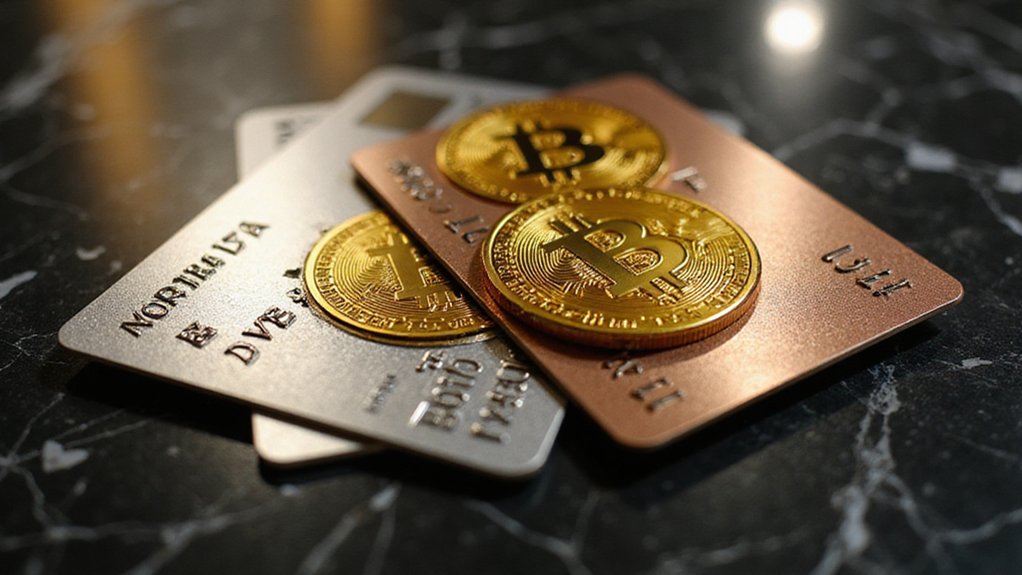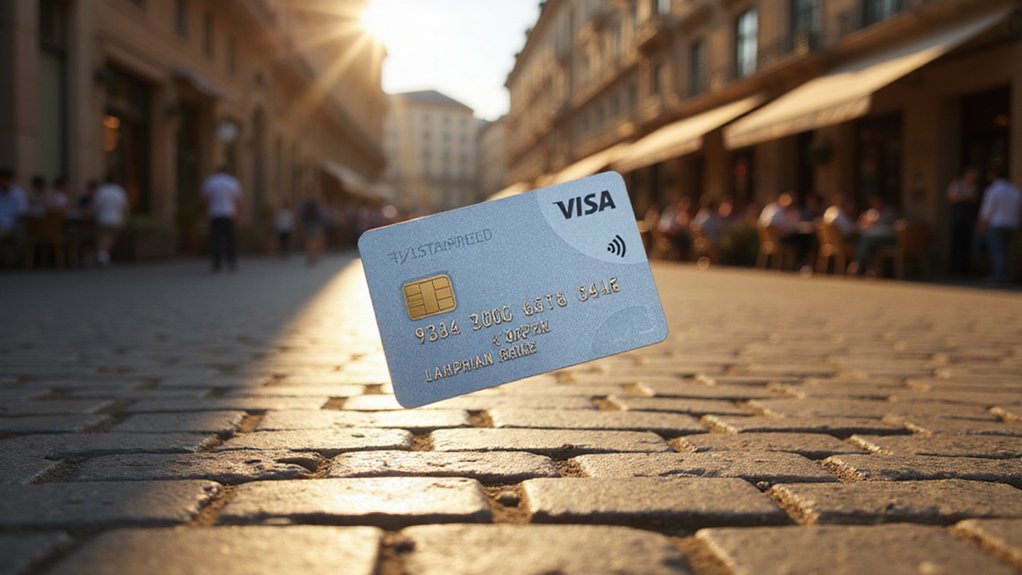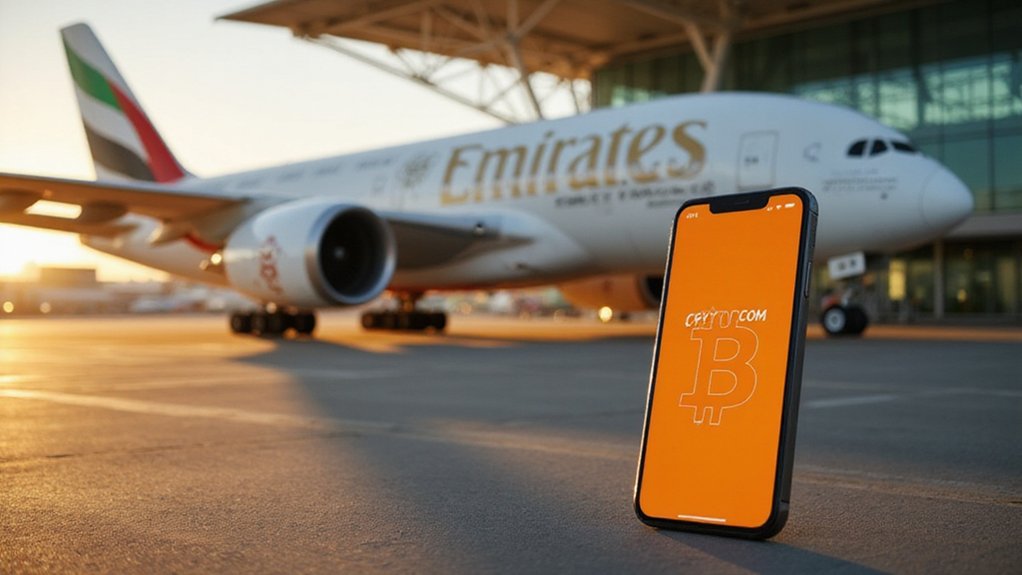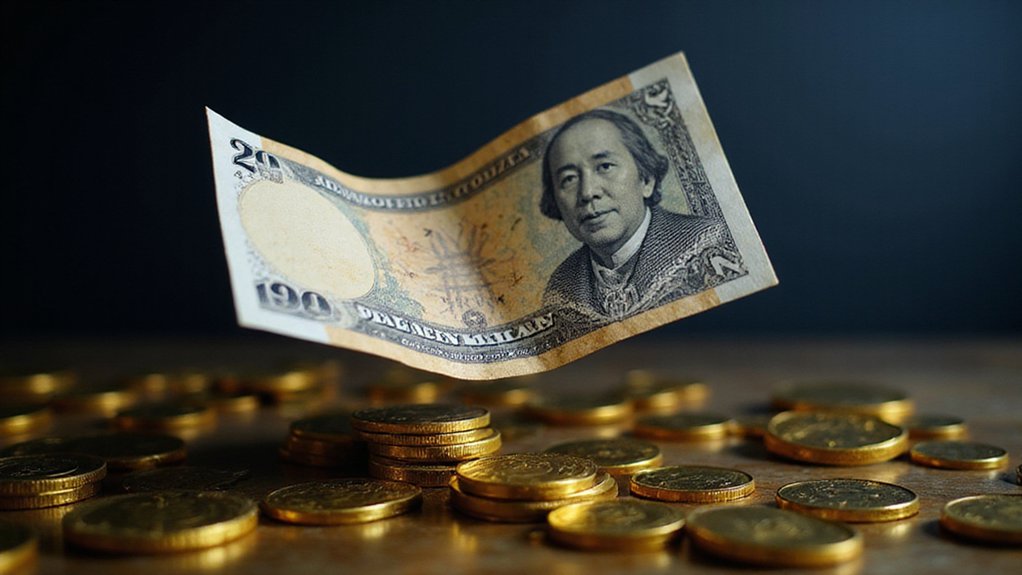While traditional credit cards have spent decades convincing consumers that airline miles and cash back represent the pinnacle of reward innovation, the cryptocurrency sector has characteristically decided that earning Bitcoin on your morning coffee purchase constitutes the next logical evolution of consumer finance.
The crypto credit card market, perhaps inevitably, has grown from $1.53 billion in 2024 to $1.82 billion in 2025—an 18.8% surge that suggests consumers find the prospect of volatile digital assets as rewards surprisingly appealing.
These cards operate through the elegant simplicity of linking cryptocurrency wallets to payment networks, converting digital assets to fiat currency at the precise moment of purchase. Users can theoretically hedge against inflation while accumulating Bitcoin or Ethereum rewards that might appreciate in value (or, naturally, depreciate spectacularly).
The appeal lies partly in the psychological satisfaction of earning assets that could theoretically moon rather than accumulating points destined for mediocre hotel stays.
The psychological thrill of potentially explosive gains beats collecting points for underwhelming vacation redemptions.
Market projections indicate this sector will reach $3.58 billion by 2029, driven by blockchain adoption and increasingly crypto-friendly regulations. Europe has witnessed a 15% adoption increase in 2025, suggesting consumers are warming to the concept of earning digital gold instead of traditional rewards.
The cards typically partner with established payment networks like Visa or Mastercard, lending legitimacy to what might otherwise appear as elaborate experiments in monetary policy.
The functionality extends beyond simple transactions, offering multi-currency support and real-time conversion capabilities that facilitate both online and offline purchases. Various reward schemes emerge regularly, from straightforward crypto cashback to complex multi-token incentives that would challenge actuaries.
Some platforms require users to maintain specific crypto holdings or premium subscriptions, adding layers of complexity that traditional card issuers would find charmingly antiquated. Premium tier cards can deliver top-tier rewards of 5% or more back while providing enhanced security features that appeal to serious crypto enthusiasts.
The growing market segmentation includes applications across banking, personal consumption, and business sectors, with different providers offering increasingly sophisticated reward structures. Strategic partnerships between crypto firms and payment networks continue to emerge as key factors enabling broader market accessibility and enhanced functionality.
As regulatory clarity improves globally, these cards position themselves as bridges between traditional finance and decentralized alternatives, enabling users to reduce reliance on conventional banking while maintaining spending flexibility through immediate crypto-to-fiat conversion capabilities. The underlying infrastructure supporting these payment solutions benefits from emerging Layer 1 blockchain networks that deliver ultra-high throughput capabilities essential for processing real-time financial transactions.









